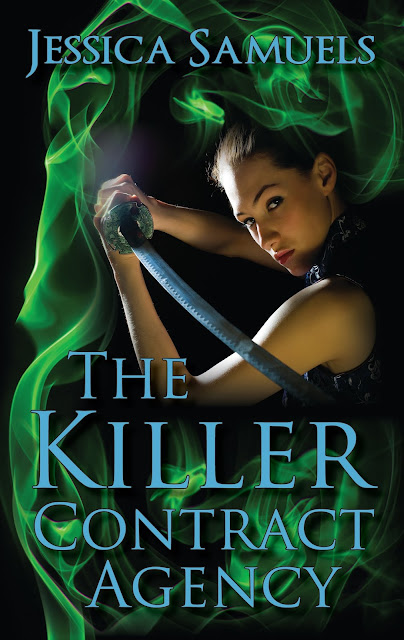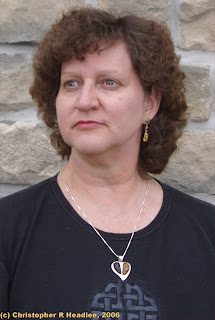 Tales of Blood and Sulphur: Apocalypse Minor
Tales of Blood and Sulphur: Apocalypse Minor
Tales of Blood and Sulphur
Volume One
J.G. Clay
Genre: Horror
Publisher: Forsaken
Date of Publication: 24th July, 2015
ISBN: 978-1513701998
ASIN: 978-1513701998
Number of pages: 212
Word Count: 77,000 words approx.
Cover Artist: Ashley Ruggirello
Book Description: Eleven Tales steeped in Blood and reeking of Sulphur
J.G Clay takes you on a journey through the voids of Reality and into dark places where demons, mutants and inter-dimensional creatures taunt, taint and corrupt Humanity. Survival is not guaranteed, sanity is not assured and death lurks in every corner. These are the Tales of Blood and Sulphur: Apocalypse Minor; eleven twisted tales of terror and mayhem..... There are cracks in the skin of Reality.
Some are microscopic, others are as wide as a four-lane motorway. As the fault lines increase and widen, the door to our world shines like a beacon in the darkness, a warm and inviting sight to others beyond our understanding. When They cross over into our realm, The Tales begin...... A gambler taking one last desperate throw of the dice. A struggling writer making an unholy alliance. An eternal being fighting to stay alive in the financial capital of India. A man burdened with a terrible town secret. The Law Enforcers who must never cry. The End of Days live and direct from the rural heartland of England.
The blood is warm, the sulphur is burning, the tales will be told, the Apocalypse Minor is imminent!
Review:
So this is a great set of short stories. It is definitely something that reminds me of the Stephen King short story sets. It is definitely one that I would recommend to others. It has been a while since I read something that was like this. I have been so engrossed in other genres that this was a fresh step in a different direction for me.
This was the author's first book and he hit a home run with it. It says something when an author can do this well with their first book. Usually we don't hear about an author until they get to their third book or so and then we all have to go back and track down the first things they have written. I am glad that I got to read this book and that each story had something to draw me in.
I truly think that we can expect to see some of these stories become something more. I would not be surprised if in years to come we see books and movies coming from these stories. It is definitely something I would read more of or something I would see.
In short, I would recommend this book to all who are into horror/scary stories. Some will make you want to keep the lights on though, because once the lights go out something might get you!
Pros: Great stories, very scary
Cons: I think that the slang was a little much in some areas, too casual
Overall rating: I would recommend this book.
Excerpt:
‘Above
them, the azure of the sky was torn by a crack. It was difficult to
accurately measure how large the hole was. The more the reporter
concentrated on it, the more it seemed to shift and blur as if it
knew that the men below were observing and measuring it. It seemed to
flatten, then expand and then flatten again, growing wider with every
expansion. Thin filaments of stuff poked through the hole, questing
and searching the space around it before disappearing back.
It’s
tasting the air. The thought startled him. It wasn’t alive whatever
it was. Strange, certainly. Unexpected? Most definitely. But not
alive. This was one for the scientists. He would make his report, get
Murray to air it, and leave it with people far more qualified and
clever than he. Reporting from the Twilight Zone wasn’t in his
remit, at all.
As
he watched, the crack opened up, wider this time.
Silence.
It was total, suffocating.
Even
the birds had stopped singing.
The
hairs on J.D’s neck raised in stiff salute as the atmosphere became
heavy with expectation.
He
heard the men shuffling nervously behind him. His annoyance grew as
tried to mask his own fear. It was time to take control of this
situation. Wasn’t that what Quigley would do?
He
turned, an angry look on his face.
“What
the fuck’s the matter with—”
A
low groaning stopped him dead. It boomed from the sky, echoing around
them. Mac’s eyes widened, Mullen became pale. Earl raised a
quizzical eyebrow but that was the extent of his response. He wasn’t
an emotional sort. He was too stoned anyway.
The
groaning sound continued for a moment before tailing off into an ear
splitting keening. J.D. clapped his hands to his ears as the pitch
became too intense to bear. It was no use. The sound seeped through
his hands as if they were not there. Pain spiked behind his eyes. He
screamed, sinking to his knees. The pitch became higher, rattling the
filling in his molars. He felt a warm gush as the blood vessels in
his nose let go. The world canted sideways, then became dark. He
keeled over.
“Wake
up, man, wake up.”
He
groaned, pushing away the insistent hands that kept shoving and
shaking him.
“No
school today, mum. It’s a holiday.” He mumbled incoherently as
hands dragged him up to a sitting position.
“J.D,
shape up, man.”
Annoyed,
the reporter lashed out groggily. A hand smashed his cheek, whipping
his head to the side. Clarity returned to him, the slap stinging his
face. He looked around. Sickening pain lanced his head, reaching a
crescendo before subsiding into a low level buzz. His vision
clearing, he noticed a peculiar tint to the daylight. The world
looked greener than before.
Have
I had a stroke or something?
He
moved his legs and arms and looked up. Mac crouched in front of him,
his face pale, almost beige. His lips and chin were coated with
crimson, trails of blood leading from his nose. They all had
nosebleeds, it seemed. Mac’s eyes were large, agitated and lined
with red.
“Thank
fuck you’re awake. Look man, we’ve gotta get the fuck out of
here. That thing’s got even bigger.” His voice was panicky, the
words tumbling out in a rush.
Irritated
and groggy, J.D. pushed him away and struggled to his feet. His
senses cleared and returned, but the green tint to the daylight
remained. Mac spun him around, pointing back to the strange portal.
“Look
at that. You can’t tell me that’s normal.”
J.D.
looked up.
What
the ever-living fuck is going on here? His mouth dropped open at the
sight above them.
The
crack had increased in size and become rounder, yet jagged. A rotten,
emerald light spilled from the hole in the sky. He felt relieved. He
wasn’t having a stroke. The relief evaporated. There were sounds
coming from the hole, slithering squelching sounds. He gulped,
turning to the others. Earl had his boom mike raised, headphones on,
his face blank as he recorded. Mac looked terrified, as did the
farmer. J.D. stepped up to him, his face within kissing distance. He
jerked a thumb toward the hole.
“That
noise! Is that what you heard last night?” Mullen merely nodded,
his face ashen, his lips moving in a soundless incantation. The man
was very close to losing his mind. The squelching became a fraction
louder. The reporter considered his options. This was beyond the
scope of any of them. Maybe it was better to let the authorities take
care of it. Or maybe it was the biggest chance ever gifted to a
struggling, disrespected, low-level reporter. The idea appealed. This
could be the event that would propel him past his smug rival and his
horrid boss.
He
looked over at Mac. “Have you called it in?”
Mac
shook his head.
“Why
not?”
The
darker skinned man snorted in disbelief, gesturing at the green tear.
“Have you fucking seen what’s going on? What’s the point of
calling it in to Murray? I called the police.” Mac really must have
been terrified. He had no love for the boys in blue.
“What
did they say?”
The
camera man shrugged. “That they were aware of the situation and
that the army was on their way. People can see the light as far away
as Leicester, Kettering, even Brum. When I told them about the other
stuff, the guy on the phone said, and I quote, “what stuff?’”
J.D.
turned this over in his mind. They were at the epicentre of this,
able to see clearly what others at a distance could not. The footage
shot would be pure gold.’
About
the Author:
 J.G
Clay was born in Leamington Spa, Warwickshire on Halloween night,
1973. By sheer coincidence, it was the night of the full moon. The
man was tailor made for the Horror Genre. A life-long horror and
science fiction fan, he has written for his own amusement since his
teenage years, taking time off to do the usual things that adolescent
boys do and growing up disgracefully. Now in his forties, he has
returned to his passion for the dark, the weird and the twisted.
Tales of Blood and Sulphur is his first foray into the world of the
Author but rest assured, there are plenty more stories to come. The
man has a plan and he is out to scare the world, the solar system and
beyond. Off duty, he has a passion for music, films and Birmingham
City FC. He can also hold down a half decent bassline. J.G lives with
his wife and step-daughter in Rothwell, Northamptonshire – the
heart of the English countryside, an idyllic setting but a strange
one to find a Nightmare Child of Halloween.
J.G
Clay was born in Leamington Spa, Warwickshire on Halloween night,
1973. By sheer coincidence, it was the night of the full moon. The
man was tailor made for the Horror Genre. A life-long horror and
science fiction fan, he has written for his own amusement since his
teenage years, taking time off to do the usual things that adolescent
boys do and growing up disgracefully. Now in his forties, he has
returned to his passion for the dark, the weird and the twisted.
Tales of Blood and Sulphur is his first foray into the world of the
Author but rest assured, there are plenty more stories to come. The
man has a plan and he is out to scare the world, the solar system and
beyond. Off duty, he has a passion for music, films and Birmingham
City FC. He can also hold down a half decent bassline. J.G lives with
his wife and step-daughter in Rothwell, Northamptonshire – the
heart of the English countryside, an idyllic setting but a strange
one to find a Nightmare Child of Halloween.
 Book Title: Ocean Park
Book Title: Ocean Park AUTHOR Bio and Links:
AUTHOR Bio and Links:






























